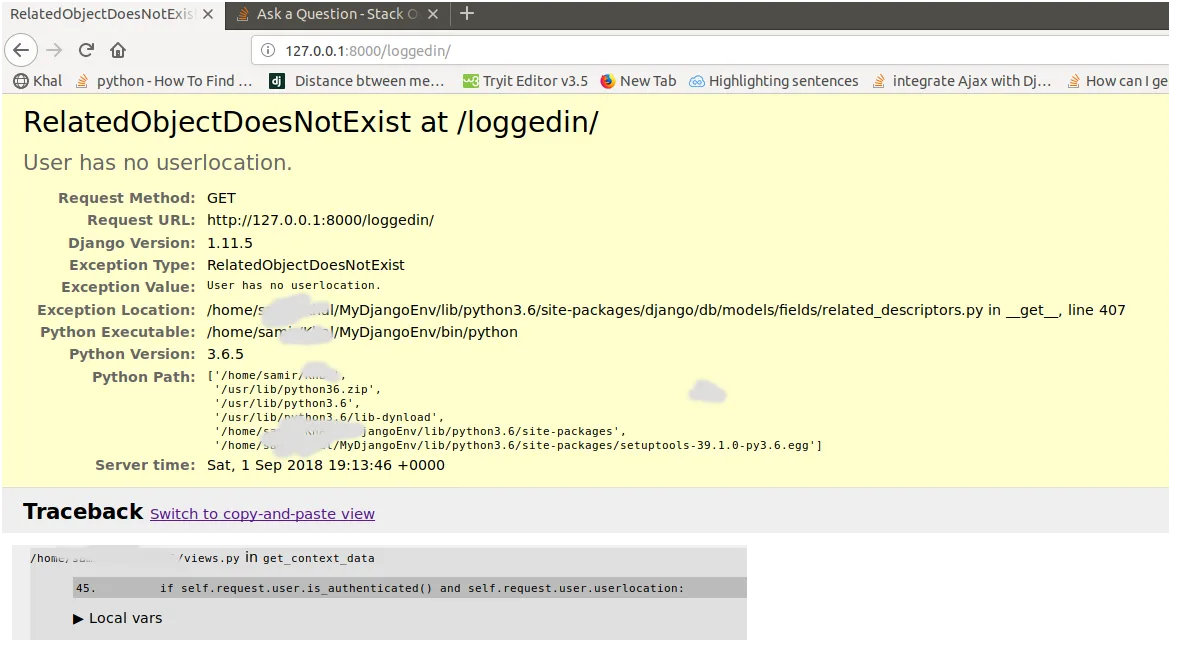我有以下代码:
以下是models.py文件:
if self.request.user.is_authenticated() and self.request.user.userlocation,我不明白的是为什么会出现“用户没有userlocation”错误。我有一个if语句,如果条件不满足,它不应该只是继续执行并显示上下文吗?class Homepage(TemplateView):
template_name = 'home.html'
def get_context_data(self, **kwargs):
context = super(Homepage, self).get_context_data(**kwargs)
context['event_list'] = Event.objects.all()
if self.request.user.is_authenticated() and self.request.user.userlocation:
print("The code reached here ")
return context
以下是models.py文件:
class UserLocation(models.Model):
user = models.OneToOneField(User, on_delete=models.CASCADE)
lat = models.FloatField(blank=True, null=True)
lon = models.FloatField(blank=True, null=True)
point = models.PointField(srid=4326, default='SRID=4326;POINT(0.0 0.0)')
objects = models.GeoManager()

UserLocation的OneToOneField吗? - Willem Van Onsemimport了ObjectDoesNotExist错误? - Willem Van Onsemfrom django.core.exceptions import ObjectDoesNotExist,它会显示这些类型的错误。 - Samir Tendulkar